Caribbean
So small a segment of the earth’s surface is not easy to take seriously – especially since it lies near the most powerful nation in world history, and has become a favorite place to loaf, bathe, drink and flirt, for Americans and other foreigners.
Yet only a couple of centuries ago, the Caribbean islands became the testing ground for European imperialism, modern slave labor, and the first production site for the “proletarian drug foods,” such as sugar, coffee and rum. Never before had Europe succeeded in establishing overseas production of such profitable imports, in tropical lands that they owned by conquest. The ensuing struggles -- launched from below by those who worked, and from above by the reformers in the metropolis -- to shake loose and overturn those innovative capitalistic experiments preoccupied for centuries the armies, navies and governments of Europe's most powerful states, as well as the U.S. and Brazil.
An important result of European interest was that the islands and nearby shores became one of the most ethnically diverse regions of the globe, exposed to a modernization that had rested on genocide, slavery, large-scale acculturation, early and forced industrialization, and then, revolution.
At the end, however, the Caribbean was no longer a key economic area, and lost almost entirely its power to attract capital and interest. My work has been on how and why this happened – but approached via fieldwork, on the ground, and only secondarily from the perspective of a historian.
I worked successively in three major Caribbean societies: Puerto Rico, Jamaica, and Haiti, on a different topic in each, first studying sugarcane communities; then the peasant villages established after slavery; and finally, in Haiti, on marketplace trade. My larger aim was to acquaint myself with the ways in which the peoples and cultures in these three historically different places were alike, as well as different. My newest book, Three Ancient Colonies (2010) aims to suggest explanations for both likeness and difference.
Publications
Books
-
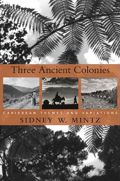
 2010 Three Ancient Colonies. Caribbean Themes and Variations. Cambridge: Harvard U. Press.
2010 Three Ancient Colonies. Caribbean Themes and Variations. Cambridge: Harvard U. Press.
Publisher - Amazon - 2003 O poder amargo do Açúcar. Recife: Editoria Universitaria.
Google Books 
 1996 Tasting Food, Tasting Freedom: Excursions into Eating, Culture, and the Past. Boston: Beacon Press. 176 pp.
1996 Tasting Food, Tasting Freedom: Excursions into Eating, Culture, and the Past. Boston: Beacon Press. 176 pp.
Publisher - Buy local - Amazon
Translations- Chinese: 吃:漫遊飲食行為、文化與歷史的金三角地帶
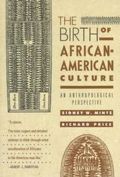


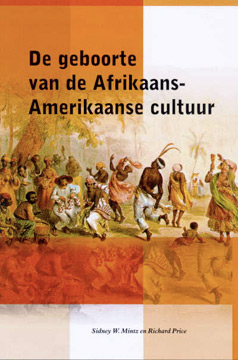
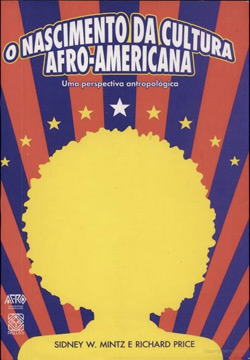 1992 The Birth of African-American Culture: An Anthropological Perspective, with Richard Price. Boston: Beacon Press.
1992 The Birth of African-American Culture: An Anthropological Perspective, with Richard Price. Boston: Beacon Press.
Publisher - Buy local - Amazon
Translations- Japanese: 聞書 アフリカン・アメリカン文化の誕生―カリブ海域黒人の生きるための闘い
- Dutch: De geboorte van de Afrikaans-Amerikaanse cultuur
- Portuguese: O nascimento da cultura afro-americana
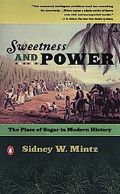

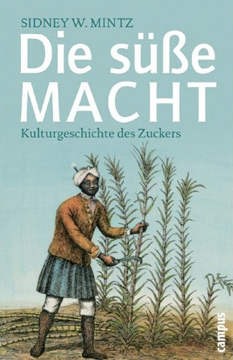
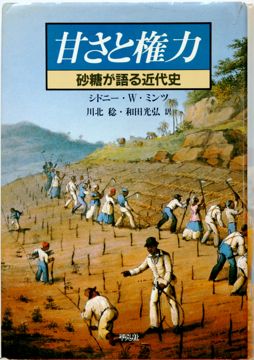


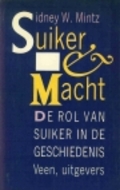
 1985 Sweetness and Power: The Place of Sugar in Modern History. New York: Viking-Penguin. 274 pp.
1985 Sweetness and Power: The Place of Sugar in Modern History. New York: Viking-Penguin. 274 pp.
Publisher - Buy local - Amazon
Translations- German: Die süße Macht
- Japanese: 甘さと権力
- Turkish: Şeker ve Güç
- Spanish: Dulzura y poder (Google Books)
- French: Sucre blanc, misere noire (OUP)
- Dutch: Suiker & Macht
- Italian: Storia dello zucchero. Einaudi Publishing
- Korean
- Arabic
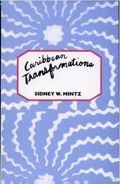
 1974 Caribbean Transformations. Chicago: Aldine Press, xxi, 355 pp.
1974 Caribbean Transformations. Chicago: Aldine Press, xxi, 355 pp.
Buy local - Amazon- 1967 Puerto Rican Culture: An Essay in the Definition of a National Culture, in U.S.-Puerto Rico Commission on the Status of Puerto Rico, Selected Background Studies: 339-434.


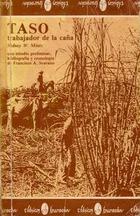 1960 Worker in the Cane. A Puerto Rican Life History. Yale Caribbean Series: II. New Haven, Yale University Press. ix, 288 pp.
1960 Worker in the Cane. A Puerto Rican Life History. Yale Caribbean Series: II. New Haven, Yale University Press. ix, 288 pp.
Buy local - Amazon
Translations- Spanish: Taso, Trabajador de la Caña
- French: Taso - La vie d'un travailleur de la canne
- 1956 Cañamelar: The Subculture of a Rural Sugar Plantation Proletariat (revision of doctoral thesis.) In Steward, J.H., et al., The People of Puerto Rico: 314-417.
Edited volumes
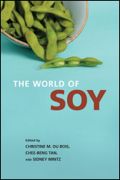
 2008 The World of Soy (co-edited with Christine Dubois and Chee-beng Tan). Urbana: University of Illinois Press.
2008 The World of Soy (co-edited with Christine Dubois and Chee-beng Tan). Urbana: University of Illinois Press.
Publisher - Buy local - Amazon
 1996 Slavery, Colonialism and Racism. New York: W.W. Norton, viii, 213 pp.
1996 Slavery, Colonialism and Racism. New York: W.W. Norton, viii, 213 pp.
Buy local - Amazon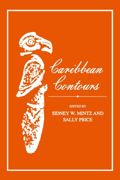
 1985 Caribbean Contours (coedited with S. Price). Baltimore: Johns Hopkins University Press. 254 pp.
1985 Caribbean Contours (coedited with S. Price). Baltimore: Johns Hopkins University Press. 254 pp.
Publisher - Buy local - Amazon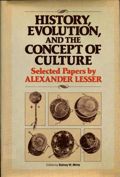
 1985 History, Evolution and the Concept of Culture: The Collected Papers of Alexander Lesser. New York: Cambridge University Press. 165 pp.
1985 History, Evolution and the Concept of Culture: The Collected Papers of Alexander Lesser. New York: Cambridge University Press. 165 pp.
Publisher - Buy local - Amazon- 1981 Esclave = facteur de production:l’économie politique de l’esclavage. Paris: Dunod. v-xvii, 271.
- 1975 Working Papers in Haitian Society and Culture. Yale University Antilles Research Program Occasional Papers 4. New Haven: xi, 290 pp.
Translation

 2002 The Vanquished. By César Andreu Iglesias. Chapel Hill: U North Carolina.
2002 The Vanquished. By César Andreu Iglesias. Chapel Hill: U North Carolina.
Publisher - Buy local - Amazon
Selected articles
- 2000 - 2010
- 2010 "Whitewashing Haiti's History," Boston Review (online), Jan. 22, 2010. Available online
- 2010 Introduction (with George Baca) to Thompson, Edgar. The Plantation. Columbia. University of S. Carolina Press.
- 2010 "Plantations and the rise of a world food economy: some preliminary ideas." In Proceedings of the Rio de Janeiro Museum of Natural History
- 2010 “Food, enigmas, colonial and postcolonial,” Gastronomica 10 (1): 149-54. Download PDF
- 2009 “Notes toward a cultural construction of modern foods,” Social Anthropology 17 (23): 209-16.
- 2009 “Afterword,” Ethnology 47 (2): 129-35 (special issue on Trash Foods).
- 2009 “Sugar: old champion, new contenders,” Food Ethics 4 (2): 5-10.
- 2008 Introduction (with Christine Dubois and Chee-beng Tan) to The World of Soy. Pp.1-23.
- 2008 “Food, culture and energy,” in Nuetzenadel, A., and F. Trentmann, eds., Food and Globalization. Pp. 21-35.
- 2008 “Creolization and Hispanic exceptionalism,” Review 31 (3): 251-65.
- 2008 “Food and Diaspora,” Food,Culture and Society 11 (4): 511-23
- 2008 “Fermented beans and Western taste,” in The World of Soy. Pp. 56-73.
- 2008 “Conclusion. Soy’s dominance and destiny” (with Christine Dubois), in The World of Soy. Pp. 299-314.
- 2008 Response to critics, Food and Foodways 6 (2) 148-58. (special issue devoted to Sweetness & Power)
- 2007 Review of Smith, F.H., Caribbean Rum: A Social and Economic History. In American Historical Review : 553-4.
- 2007 ”Institutional Mysteries.” Review of Curto, J., and R.Soulodre-LaFrance, eds.,Africa and the Americas; and G.M.Hall, Slavery and African Ethnicities in the Americas. In De Nieuwe West-Indische Gids, 82 (1 and 2) :97-102.
- 2007 Introduction to Herskovits, M.J. Life in a Haitian Valley. Pp. v-xii.
- 2007 “Asia’s contributions to world cuisine: a beginning inquiry,” in Cheung, S., and C.B. Tan, eds., Food and Foodways in Asia: 201-10
- 2007 Preface to Bosma, U., J.Giusti, and R. Knight. eds., Sugarlandia Revisited: Sugar and Colonialism in Asia and the Americas. Pp.1-4.
- 2007 Epilogue. Second German edition of Die süsze Macht. Pp.288-92.
- 2007 “André Gunder Frank” (obituary), American Anthropologist 109 (1): 232-4.
- 2006 “The anthropology of ourselves: an interview with Sidney W. Mintz,” by Charles V. Carnegie. Small Axe 19: 106-79.
- 2006 “Food, history and globalization,” Journal of Chinese Dietary Culture 2 (1): 1-22(In Chinese translation: 23- 38.)
- 2006 “Food at moderate speeds,” in Wilk, Richard, ed., Fast Food/Slow Food. Pp. 3-11.
- 2006 Comment on Ewing, Ethos 34 (1):123-5.
- 2004 Foreword to Du Bois, C.M., Images of West Indian Immigrants in Mass Media. The Struggle for A Positive Ethnic Reputation. Pp.xi-xiv.
- 2004 “Bittersweet.” Review of Macinnis, Peter. Bittersweet, in Gastronomica 4 (2): 90-92.
- 2004 “Finding the individual in the global,” Asian Anthropology, 3: 1-11.
- 2004 “Colonialismo e prima mondializzazione,” (with Harriet Friedmann), Atlante Dell’Alimentazione e Della Gastronomia. Vol. 1. Pp. 357-371.
- 2004 “Caribbean history, Caribbean labor,” in Beck, Kurt, Till Förster, and Hans Peter Hahn, eds., Blick nach vorn. Festgabe für Gerd Spittler zum 65. Geburtstag. Pp. 136-44.
- 2003 “Soybeans” (with Christine M. Du Bois), Scribner Encyclopedia of Food and Culture, Pp. 322-326.
- 2003 “Eating communities: the mixed appeal of sodality.” in Döring, T., M. Heide, and S. Muehleisen, eds., Eating Culture. Pp.19-34.
- 2003 Prologue to O poder amargo do açúcar. Produtores escravizados, consumidores proletarizados. Pp.7-199. .
- 2003 “Devouring objects of study: Food and fieldwork.” The David Skomp Lecture, Indiana University. 18pp.
- 2002 “The anthropology of food and eating” (with Christine M. Du Bois), Annual Reviews of Anthropology 31: 99-117.
- 2002 “Quenching homologous thirsts,” in Goddard, Ives, and William Merrill, eds., Anthropology, History, and American Indians: Essays in Honor of William Curtis Sturtevant. Smithsonian Contributions to Anthropology 44: 349-57.
- 2002 “Heroes sung and unsung: toward a history of the anthropology of food,” CNA Newsletter 25 (2): 3-8. Access online
- 2002 “Digesting the future: food studies and the puzzle of modernity,” IACP Food Forum Quarterly: 10-11.
- 2002 “The People of Puerto Rico half a century later: one author’s recollections,” Journal of Latin American Studies 6 (2): 2-11.
- 2002 Foreword to Besson, J. Martha Brae’s Two Histories. Pp. xiii-xix.
- 2001 “Minzuzhi de huigu yu sikao” (“A backward look at ethnography”), Quinghua Shehuixue Pinglun (Tsinghua Sociological Review) No. 1:191-99.
- 2001 “You are what you eat,” Review of Schlosser, E., Fast Food Nation. Times Literary Supplement, Sept 14, No. 5137:7-8.
- 2001 “Whither cultural studies?” Review of Miller, T., and A. McHoul, Popular Culture and Everyday Life, in Contemporary Psychology 46 (2)(Aug 2001): 371-2.
- 2001 “The buzz that cheers,” Review of Weinberg, A.,and B. Bealer, The World of Caffeine. Times Literary Supplement, April 6 2001, No. 5114: 36.
- 2001 Foreword to Wu, David Y.H., and S. Cheung, eds., The Globalization of Chinese Food. Pp.xii-xx.
- 2001 “Food patterns in agrarian societies: the core-fringe-legume hypothesis” (with Daniela Schlettwein-Gsell), Gastronomica I (3): 41-52.
- 2001 “Food and eating: some persisting questions,” in Belasco, W., and P. Scranton, eds., Food Nations (New York: Routledge, 2001). Pp.37-48.
- 2001 “Comida e antropología: uma breve revisão,” Revista Brasileira de Ciência Sociais 47 (16): 31-41.
- 2001 “Closing commentary,” in Wu, David Y.H. and T. Chee-beng, eds., Changing Chinese Foodways in Asia. Pp. 271-286.
- 2001 “Bean curd consumption in Hong Kong” (with Chee Beng Tan), Ethnology 40 (2):113-28.
- 2000 “Sows’ ears and silver linings,” The 1996 AAA Distinguished Lecture. Current Anthropology 41 (2): 169-89.
- 2000 “How juice went from Stone Age to Ice Age,” Wall Street Journal. June 22, 2000: Pp. A22.
- 2000 “Food patterns East and West: some hypothetical contrasts,” in Grodinsky, P., ed., Exploring Japanese Food Culture. Pp. 15-24.
- 1990 - 1999
- 1999 Review of Chomsky, A., and A. Lauria-Santiago, eds., Identity and Struggle at the Margins of the Nation-State. In Times Literary Supplement, August 27, No. 5030: 37.
- 1999 “Material culture; cultural material,” Diogenes 47 (188 [issue 4]): 16-21.
- 1999 “La comida como un campo de combate ideolóxico,”VII Congreso de Antropología (Santiago de Compostela).17pp.
- 1999 “Sweet polychrest,” Social Research 66 (1):85-101.
- 1999 “Sweet interloper” (with Mary Weismantel). In Plotnicov, L., and R. Scaglion, eds. The Diffusion of Plant Foods: A Symposium Volume. Pp.55-74.
- 1998 “Matters of taste: an interview with Dale Keiger,” Johns Hopkins Magazine 50 (5): 12-18.
- 1998 “The Old & New World exchange,” Nutrition Today 33 (2):1-5.
- 1998 “Excitantia and the everyday: the rise of plebeian luxuries,” Suomen Antropologi 4: 4-13.
- 1998 “Routes to the Caribbean: an interview with Sidney W. Mintz,” Plantation Society in the Americas V (1): 103-34.
- 1998 Preface to Jain, S., and R. Reddock, eds. Women Plantation Workers. Oxford: Berg. Pp. ix-xiv.
- 1997 “Mobile menus.” Review of Walvin, James, Fruits of Empire: Exotic Produce and British Taste, 1660-1800, in The Times Literary Supplement, No. 4927: 36.
- 1997 “Swallowing modernity.” In Watson, J.L., ed. Golden Arches East: McDonalds in East Asia. Stanford: Stanford U Press. Pp. 183-200.
- 1997 “The localization of anthropological practice: from area studies to transnationalism.” Critique of Anthropology 18 (2):117-33.
- 1997 “Sugar and morality.” In Brandt, Allan M., and Paul Rozin, eds., Morality and Health. New York: Routledge. Pp. 173-84.
- 1996 “The bromides of gods, the passions of humans.” Review of Harwich, N., Histoire du Chocolat, in Nieuwe West-Indische Gids 70 (1 & 2): 107-112.
- 1996 “Chocs, Coke and cacao.” Review of Coe, Sophie and Michael Coe, The True History of Chocolate; and Bailleux, Nathalie, et al., The Book of Chocolate, in The Times Literary Supplement, No. 4871: 10.
- 1996 “Fish, food habits and material culture,” The Hong Kong Anthropologist, No. 9: 2-10.
- 1996 “Eating seafood: A trial survey of Hong Kong preferences,” The Hong Kong Anthropologist, No. 9: 37-39.
- 1996 “Planters in power,” Review of Stinchcombe, Arthur L., Sugar Island Slavery in the Age of Enlightenment, in The Times Literary Supplement, No. 4860:16.
- 1996 “Ethnic difference, plantation sameness,” in Oostindie, G. ed., Ethnicity, Social Structure, and National Identities in the Caribbean: Essays in Honor of Harry Hoetink. London: Macmillan, 39-52.
- 1996 “Enduring substances, trying theories: The Caribbean region as Oikoumenê.” The 1994 Huxley Memorial Lecture. Journal of the Royal Anthropological Institute 2 (2): 289-311.
- 1996 “El dulce intruso: El azúcar en el Nuevo Mundo,” in Long, Janet, ed., Conquista y Comida: Consecuencias del Encuentro de dos Mundos. Mexico: Universidad Nacional Autonoma de Mexico. Pp.227-35.
- 1995 “The social history of Haitian Vodou” (with Michel-Rolph Trouillot), in Cosentino, Donald J., ed., Sacred Arts of Vodou, Chapter 4. LA: UCLA Fowler Museum, 123-47.
- 1995 “Slave life on Caribbean sugar plantations: Some unanswered questions,” in Palmié, Stephan, ed., Slave Cultures and the Cultures of Slavery. Knoxville: University of Tennessee Press, 12-22.
- 1995 “Imagen y realidad en el paisaje Antillano de plantaciones,” in Malpica, Antonio, ed., Paisajes del Azúcar. Proceedings of the Fifth International Sugar Cane Seminar, 20-24 September 1993. Motril: Diputación Provincial de Granada, pp. 173-177.
- 1995 “Can Haiti change?” Foreign Affairs 74 (1): 73-86. Access online
- 1995 “Foreword” to Ka, Chih-ming, Japanese Colonialism in Taiwan: Land Tenure, Development, and Dependency, 1895-1945. New York: Westview Press, xv-xx.
- 1995 “Food and its relationship to concepts of power.” In: McMichael, Philip, ed.,, Food and Agrarian Orders in the World-Economy. Westport: Praeger Publishers, 3-13.
- 1994 “Eating and being: what food means,” in Harriss-White, B. and Sir R. Hoffenberg, eds., Food. Oxford: Basil Blackwell, 102-115.
- 1994 “Crops and human culture,” Third Annual Conference of the Society for the Study of Local and Regional History. Marshall: Southwestern University. 14 pp.
- 1994 “An impartial history of the Mundial Upheaval Society,” Anthro Watch II (3): 19-20.
- 1994 “Goodbye, Columbus: Second thoughts on the Caribbean region at mid-millennium.” The 1993 Walter Rodney Memorial Lecture, University of Warwick, Coventry. 15pp.
- 1994 “An addictive commodity.” Review of Goodman, Jordan, Tobacco in History: The Cultures of Dependence, in American Anthropologist 96 (4): 970-1.
- 1994 “Sugar, tea and the British working class.” (”Zur Beziehung zwischen Ernährung und Macht.”) In: Jahrbuch für Wirtschaftsgeschichte. Basel: Akademie Verlag, 61-72.
- 1993 “Tasting food, tasting freedom,” in Binder, W., ed., Slavery in the Americas: 257-75.
- 1993 “How sweet it is--for some.” Review of Larkin, John A., Sugar and the Origins of Modern Philippine Society, in The Times Literary Supplement, No. 4733: 22.
- 1993 Introduction to Look Lai, W., Indentured Labor, Caribbean Sugar: Chinese and Indian Immigrants to the British West Indies, 1838-1918. Baltimore: Johns Hopkins University Press, xxiii-xxviii.
- 1993 “Clio rediviva,” in Henderson J., and P. Netherly, eds., Configurations of Power: Holistic Anthropology in Theory and Practice. Ithaca/London: Cornell University Press, 327-33.
- 1993 “A Note to the Reader” (with Rebecca J. Scott), The Cuba Commission Report: A Hidden History of the Chinese in Cuba. Baltimore: Johns Hopkins University press: vii-viii.
- 1993 “The changing roles of food in the study of consumption,” in Brewer, J. and R. Porter, eds., Consumption and the World of Goods. London: Routledge, 261-73.
- 1993 “Tasting food, tasting freedom,” in Binder, W., ed., Slavery in the Americas: 257-75.
- 1993 “Feeding, eating, and grazing: some speculations on modern food habits,” The Journal of Gastronomy 7 (1): 46-57.
- 1992 “Rhubarb, rhubarb....” Review of Foust, C.M., Rhubarb: The Wondrous Drug, in The Times Literary Supplement, No. 4653: 32.
- 1992 “Sucre blanc, misère noire,” (interview with Christian Deverre). Courrier de la Planète 6: 38-9.
- 1992 “Remembering Gordon,” in Wessman, J.W., ed., Caribbean Studies Newsletter 19 (1): 3.
- 1992 “Panglosses and Pollyannas; or, whose reality are we talking about?” In McGlynn, F., and S. Drescher, eds., The Meaning of Freedom: The Anthropology and History of Post-Slavery Societies. Pittsburgh: Pittsburgh University Press, 245-56.
- 1992 “Die Zusammensetzung der Speise in frühen Agrargesellschaften: Versuch einer Konzeptualisierung,” in Schaffner, M., ed., Brot, Brei und was dazugehört. Zürich: Chronos Verlag, 13-28.
- 1992 “A taste of history,” The Higher (The Times Higher Educational Supplement), No. 1018: 15, 18.
- 1991 “Tropical production and mass consumption: An historical moment,” Bulletin of the Institute of Ethnology 70: 1-12.
- 1991 “Some polar contrasts in the definition of Caribbean identity,” Identidad Nacional y Cultural de las Antillas Hispanoparlantes. Ibero-Americana Pragensia, Supplementum 5: 11-20.
- 1991 “Sweet, salt, and the language of love,” MLN, 106 (4): 852-60.
- 1991 “Pleasure, profit, and satiation,” in Viola, H.J. and C. Margolis, eds., Seeds of Change. Washington: Smithsonian Institution Press, 112-29.
- 1991 “Elucidaciones sobre la pureza,” in Malagón Barceló, J., ed., Historia y Leyenda del Mazapán. México: Ediciones San Angel, 135-42.
- 1991 “De la clase hacía la identidad: una perspectiva caribeña,” El Caribe Contemporáneo 23: 45-53.
- 1991 “Color, taste and purity,” Etnofoor, IV (1): 103-08.
- 1990 “Voices from a forgotten colony/Voces de una colonia olvidada,” in Andrews, D., ed., Contrasts/ Contrastes. Washington, DC: Smithsonian Institution Press, 9-15.
- 1990 “The peasantry as a sociohistorical category: examples from the Caribbean region,” in Lundahl, M. and T. Svensson, eds., Agrarian Society in History. London: Routledge, 31-40.
- 1990 “The Island” (La Isla), in Delano, J., Puerto Rico Mío. Washington: Smithsonian Institution Press, 1-6.
- 1990 Introduction and Bibliographical Note, to Herskovits, M. J., The Myth of the Negro Past. Boston: Beacon Press, ix-xxi.
- 1990 “Campesinado y plantación en el Caribe,” Del Caribe VI (16-17): 44-49.
- 1980 - 1989
- 1989 “The relation of class to identity: a Caribbean perspective,” Identité, Culture, Développement. Pointe-à-Pitre: Editions Caribéennes, 599-607.
- 1989 “Poverty and creativity in the Caribbean,” in Singaravélou, ed., Pauvreté et Développement: 389-95.
- 1989 “Food and culture: an anthropological view,” in Hirschoff, P.M. and N.G. Kotler, eds., Completing the Food Chain. Washington: Smithsonian Institution Press, 114-21.
- 1989 “Cuisine and haute cuisine: how are they linked?” Food and Foodways 3 (3): 185-90.
- 1989 “The sensation of moving, while standing still,” American Ethnologist 16 (4): 786-96.
- 1989 “The forefathers of crack,” Report on the Americas, XXII (6): 31-32.
- 1989 “The conquest of honey by sucrose: a psychotechnical achievement,” in Hagelberg, G., ed., Sugar: Essays to Mark the 25th Anniversary of F.O. Licht. Ratzeburg: F.O. Licht, 11-17.
- 1989 “Reply to Michael Taussig” (with Eric R. Wolf), Critique of Anthropology 9 (1): 25-31.
- 1988 “Food origins and syntheses in Caribbean history,” Journal of Gastronomy 3(4): 35-43.
- 1988 “The Power of Sweetness and the Sweetness of Power.” The Eighth Duijker Lecture. Amsterdam: Van Loghum Slaterus, 3-20.
- 1988 “Labor and ethnicity: the Caribbean conjuncture,” in Tardanico, R., ed., Crises in the Caribbean Basin. Political Economy of the World System Annuals, No. 9: 47-57.
- 1988 “La plantation et la frontière paysanne: la dialectique de l'histoire antillaise.” Bulletin de la Société d'Histoire de la Guadeloupe 75-78: 51-59.
- 1988 “Introduction,” to Taso, Trabajador de la Caña (Spanish-language edition of Worker in the Cane, No. 33). Río Piedras: Ediciones Huracán, 57-67.
- 1988 Foreword to Cross, Malcolm and Gad Heuman, eds., Labour in the Caribbean: From Emancipation to Independence. London: Macmillan Publishers Ltd., xiii-xvii.
- 1988 “Food origins and syntheses in Caribbean history,” Journal of Gastronomy 3(4): 35-43.
- 1987 “Qu'est-il donc advenu de la réforme foncière portoricaine”? In Deverre, C., ed., Enjeux fonciers dans la Caraïbe: 67-76.
- 1987 “Labor exaction and cultural retention in the Antillean region,” in Saeger, J. S.,ed., Essays on Eighteenth-Century Race Relations in the Americas: 31-52.
- 1987 “Cultivo y cultura: hacia una antropología de la produccíon en plantaciones,” in Glantz, S., ed., La Heterodoxía Recuperada: En Torno a Angel Palerm: 461-71.
- 1987 “Bitterer Zucker,” Frankfurter Allgemeine Zeitung: 3-4.
- 1987 “Author's rejoinder.” (Symposium Review on Sweetness and Power) Food and Foodways II (2): 171-97.
- 1986 “The role of the tropical plantation in the birth of the modern world,” Proceedings of the First World Plantation Conference, Louisiana State University: 17-25.
- 1986 “American eating habits and food choices: a preliminary essay,” The Journal of Gastronomy 2 (3): 15-22.
- 1985 “The anthropology of food: core and fringe in diet,” India International Centre Quarterly 12 (2): 193-204.
- 1985 “From plantations to peasantries in the Caribbean,” in Mintz, S., and S. Price, eds., Caribbean Contours: 127-53.
- 1985 “Epilogue: the divided aftermaths of freedom,” in Moreno Fraginals, M., F. Moya Pons, and S. L. Engerman eds., Between Slavery and Free Labor: 270-78.
- 1985 “Die Zeit, der Zucker und das Süsze. Zu Geschichte, Ökonomie und Bedeutung des süszen Geschmacks,” SOWI 14 (H.2): 85-95.
- 1985 “A antropologia da producão de plantation,” in Sorj, B., Fernando Henrique Cardoso, and M. Font, eds., Economia e movimentos sociais na América Latina: 145-55.
- 1984 “Labor needs and ethnic ripening in the Caribbean region.” Woodrow Wilson Center Latin American Program Working Papers No. 137. 20 pp.
- 1984 “More on the peculiar institution.” Review of Craton, M., Testing the Chains; and Patterson, 0., Slavery and Social Death, in De Nieuwe West-Indische Gids 50 (3-4): 185-199.
- 1984 “Encontrando Taso, Me Descobrindo,” Dados 27 (1): 45-58.
- 1984 “Thoughts on Caribbean society.” Review of Lewis, Gordon K., Main Currents in Caribbean Thought, in Caribbean Review XIII (1): 29-30.
- 1984 “American anthropology and the Marxist tradition,” in Maquet, J., and N. Daniels, eds., On Marxian Perspectives in Anthropology: Essays in Honor of Harry Hoijer, 1981: 11-34.
- 1983 “Peasantries and the rural sector: notes on a discovery,” in Weller, R., and S. Guggenheim, eds., Power and Protest in the Countryside: 180-8.
- 1983 “The Spanish Caribbean.” Review of Newson, Linda A., Aboriginal and Spanish Colonial Trinidad; and Cripps, Louise L., The Spanish Caribbean: From Columbus to Castro, in Latin American Research Review: 10 (1): 271-3.
- 1983 “Reflections on Caribbean peasantries,” Nieuwe West-Indische Gids 57 (1-2): 1-17.
- 1982 “Descrying the peasantry.” Review of Rodney, Walter, A History of the Guyanese Working People, in Review VI (2): 209-25.
- 1982 “Culture: an anthropological view,” Yale Review XVII (4): 499-512.
- 1982 “Choice and occasion: sweet moments,” in Barker, L.,ed., The Psychobiology of Human Food Selection: 157-69.
- 1981 “Ruth Benedict,” in Silverman, Sydel, ed., Totems and Teachers: 141-66.
- 1981 “Préface,” to Breton, Y., et M.-F. Labrecque, l’Agriculture, la pêche et l’artisanat au Yucatan: vii - ix.
- 1981 “Economic role and cultural tradition,” in Steady, F.C., ed., The Black Woman Cross-Culturally: 513-34.
- 1981 “Cultural resistance and the labor force in the Caribbean region,” in Hazen, D., T. Holloway, and D. Jones, eds., Latin American Today: Heritage of Conquest: 28-42.
- 1981 “Afterword,” in Ahern, Emily, and Hill Gates, eds., The Anthropology of Taiwanese Society: 602-19.
- 1970 - 1979
- 1979 “The dignity of honest toil.” Review of Rubin, V., and A. Tuden, eds., Comparative Perspectives on Slavery in New World Plantation Societies; Sellin, T., Slavery and the Penal System; Smith, J., Slavery in Bermuda; Irwin, G., Africans Abroad; and Owens, L., This Species of Property, in Comparative Studies in Society and History 21 (4): 558-66.
- 1979 “Time, sugar and sweetness,” Marxist Perspectives 2 (4): 56-73.
- 1979 “The role of water in Steward's cultural ecology,” Journal of the Steward Anthropological Society II (1): 17-32.
- 1979 “The anthropological interview and the life-history,” Oral History Review 1979: 18-26.
- 1979 “Slavery and the rise of peasantry,” Historical Reflections VI (1): 215-42.
- 1978 “Was the plantation slave a proletarian?” Review II (1): 81-98.
- 1978 “Caribbean marketplaces and Caribbean history,” Nova Americana (1): 333-44.
- 1977 “The so-called world system: local initiative and local response,” Dialectical Anthropology 2 (4): 253-70.
- 1977 “The role of Puerto Rico in modern social science,” Revista Interamericana VIII (1): 5-16.
- 1977 “North American anthropological contributions to Caribbean studies,” Boletín de Estudios Latinoamericanos y del Caribe 22: 60-82.
- 1977 “Foreword” (with Dell Hymes) to Taylor, Douglas, Languages in the West Indies, xi-xviii.
- 1977 “The anthropologist as infant, victim and tourist,” The Johns Hopkins Magazine 28 (5): 54-60.
- 1977 “Ethnicity and leadership: an afterword,” in Higham, J., ed., Ethnic Leadership in the United States: 198-205.
- 1977 “Africa de América Latina,” in Moreno Fraginals, M.,ed., Africa en América Latina: 378-97.
- 1977 “A note on Useem's 'Peasant involvement in the Cuban Revolution,'” Journal of Peasant Studies 5 (4): 482-4.
- 1976 “Preface” to Cook, F.S., and M. Diskin, eds., Markets in Oaxaca: xi-xv.
- 1976 “On the concept of a Third World,” Dialectical Anthropology 1 (4): 377-82.
- 1975 “Les rôles économiques et la tradition culturelle,” in Bastide, R., ed., La femme du couleur en Amérique Latine 115-48.
- 1975 “History and anthropology: a brief reprise,” in Engerman, S., and E. Genovese, eds., Race and Slavery in the Western Hemisphere: Quantitative Studies: 477-94.
- 1973 “Indiens de l'Inde aux Antilles.” Review of Malik, Y., East Indians in Trinidad, in l’Homme 13 (4): 142-6.
- 1973 “The rural proletariat and the problem of rural proletarian consciousness,” Journal of Peasant Studies 1 (3): 291-325.
- 1973 “The Caribbean region,” Daedalus 102 (2): 45-71.
- 1973 “Foreword” to Hagelberg, G., The Caribbean Sugar Industries: Constraints and Opportunities. Yale University Antilles Research Program Occasional Papers 3: vii-xiii.
- 1973 “A note on the definition of peasantry,” Journal of Peasant Studies I (1): 91-106.
- 1972 Introduction to Métraux, A., Voodoo in Haiti (2nd English language edition): 1-14.
- 1972 Foreword to Wilson, P., Crab Antics: ix-xiii.
- 1971 “Une culture à retrouver ou à créer?” Review of Abrahams, R., Deep Down in the Jungle and Positively Black, in l’Homme 11 (3): 112-7.
- 1971 “Groups, group boundaries and the perception of race.” Review of Hoetink, H., The Two Variants in Caribbean Race Relations, in Comparative Studies in Society and history 13 (4): 437-43.
- 1971 “Toward an Afro-American history,” Cahiers d’Histoire Mondiale XIII (2): 317-32.
- 1971 “The socio-historical background of pidginization and creolization,” in Hymes, D., ed., Pidginization and Creolization of Languages: 153-68.
- 1971 “Some aspects of involuntary migration and slavery,” in Kasdan, L. (ed.), Migration and Anthropology, Proceedings of The Annual Spring Meeting of the American Ethnological Society: 181-6.
- 1971 “Men, women and trade,” Comparative Studies in Society and History 12 (3): 247-69.
- 1971 “Le rouge et le noir,” Les Temps Modernes 299-300: 2354-61.
- 1971 “Afroamerikaner auf den Antillen,” in Gräbener, J., ed., Klassengesellschaft und Rassismus: 51-60.
- 1970 “Slavery and the Afro-American World,” in Szwed, J. (ed.), The World of Black Americans: 29-44.
- 1970 Foreword to Whitten, N., and J. Szwed, eds., Afro-American Anthropology: Contemporary Perspectives: 1-16.
- 1970 “Creating culture in the Americas,” Columbia University Forum XIII: 4-11.
- 1960 - 1969
- 1969 Review of Patterson, Orlando, The Sociology of Slavery, in Caribbean Studies 8 (4): 65-70.
- 1969 Summary and commentary in Robinson, A., C. Foster and D. Ogilvie, eds., Black Studies in the University. A Symposium: 202-6.
- 1969 Review of Wolf, Eric, Peasants, in American Anthropologist 76 (6): 1136-9.
- 1969 Comments on “Participant observation and the collection of data,” in Boston University Studies in the Philosophy of Science IV: 341-9.
- 1969 “A brief visit to the Third World: Guyana and Viet Nam,” Yale Review LIX (1): 151-60.
- 1968 “Social science research by North Americans abroad: some reflections,” Iranian Studies I (2): 34-40.
- 1968 “Caribbean society,” International Encyclopedia of the Social Sciences 2: 306-19.
- 1967 “Petits cultivateurs et prolétaires ruraux dans la région des Caraïbes,” Les Problèmes Agraires des Amériques Latines: 93-100 et passim.
- 1967 “Caribbean nationhood in anthropological perspective,” in Matthews, T., and S. Lewis, eds., Caribbean Integration: 140-53.
- 1966 “The Caribbean as a socio-cultural area,” Cahiers d’Histoire Mondiale X (4): 912-37.
- 1964 Review of Lewis, G., Puerto Rico, in Social and Economic Studies 12 (4): 508-17.
- 1964 “The science of culture,” Technology Review 67 (1): 23-4.
- 1964 “The employment of capital by Haitian market women,” in Firth, R., and B. Yamey, eds., Capital, Savings and Credit in Peasant Societies: 256-86.
- 1964 “Peasant market places and economic development in Latin America.” Occasional Paper No. 4. Graduate Center for Latin American Studies, Vanderbilt University, 9 pp.
- 1964 “Melville J. Herskovits and Caribbean Studies: An Appreciation,” Caribbean Studies4 (2): 40-9.
- 1964 Foreword to Guerra y Sánchez, R., Sugar and Society in the Antilles, Yale Caribbean Series VII: xi-xliv.
- 1964 “Currency problems in eighteenth-century Jamaica and Gresham's Law,” in Manners, R., ed., Patterns and Processes in Culture: 248-65.
- 1963 “Markets in Haiti,” New Society, March 23: 18-19.
- 1963 “La plantación y la reforma agraria,” Revista Interamericana de Ciencias Sociales 2 (1): 66-77.
- 1962 “Living fences in the Fond-des-Nègres region, Haiti,” Economic Botany 16 (2): 101-5.
- 1961 “The question of Caribbean peasantries: a comment,” Caribbean Studies 1(3): 31-4.
- 1961 “Standards of value and units of measure in the Fond-des-Nègres market place, Haiti,” Journal of the Royal Anthropological Institute 91 (1): 23-38.
- 1961 “Pratik: Haitian personal economic relationships,” Proceedings of the Annual Spring Meetings, American Ethnological Society: 54-63.
- 1961 Review of Elkins, Stanley, Slavery. American Anthropologist 63 (3): 579-87.
- 1960 “The origins of the Jamaican internal marketing system” (with Douglas Hall), Yale University Publications in Anthropology 57. 26pp.
- 1960 “The house and the yard among three Caribbean peasantries,” VIe Congrès International des Sciences Anthropologiques et Ethnologiques, Tome II (ler vol.): 591-6.
- 1960 “Peasant markets,” Scientific American 203 (2): 112-8, 120, 122.
- 1960 “Le système du marché rural dans l'économie haïtienne,” Bulletin du Bureau d’Ethnologie, Série III (23-24-25): 3-14.
- 1960 “A tentative typology of eight Haitian market places,” Revista de Ciencias Sociales IV (1): 15-58.
- 1950 - 1959
- 1959 “The plantation as a socio-cultural type.” Plantation Systems of the New World. Pan American Union Social Science Monographs VII: 42-50.
- 1959 “Labor and sugar in Puerto Rico and Jamaica,” Comparative Studies in Society and History 1(3): 273-83.
- 1959 “Internal market systems as mechanisms of social articulation,” Proceedings of the Annual Spring Meetings, American Ethnological Society: 20-30.
- 1958 “The historical sociology of the Jamaican church-founded free village system,” De West-Indische Gids 38 (1-2): 46-70.
- 1958 “La plantación como símbolo social cultural,” Revista Bimestre Cubana 75 (2): 104-20.
- 1957 “The role of the middleman in the internal distribution system of a Caribbean peasant economy,” Human Organization 15 (2): 18-23.
- 1957 “Haciendas and plantations in Middle America and the Caribbean” (with Eric Wolf), Social and Economic Studies 6 (3): 380-412.
- 1955 “The Jamaican internal marketing pattern: some notes and hypotheses,” Social and Economic Studies 4 (1): 95-103.
- 1955 “Puerto Rican migration: a threefold comparison,” Social and Economic Studies 4 (4): 311-25.
- 1954 “On Redfield and Foster,” American Anthropologist 56 (1): 87-92.
- 1953 “The folk-urban continuum and the rural proletarian community,” American Journal of Sociology 59 (2): 136-43.
- 1953 “The culture-history of a Puerto Rican sugar-cane plantation, 1876-1949,” Hispanic American Historical Review XXXIII (2): 224-51.
- 1951 “The role of forced labour in nineteenth-century Puerto Rico,” Caribbean Historical Review 2: 134-41.
- 1950 “An analysis of ritual co-parenthood (compadrazgo)” (with Eric Wolf), Southwestern Journal of Anthropology VI (4): 341-68.